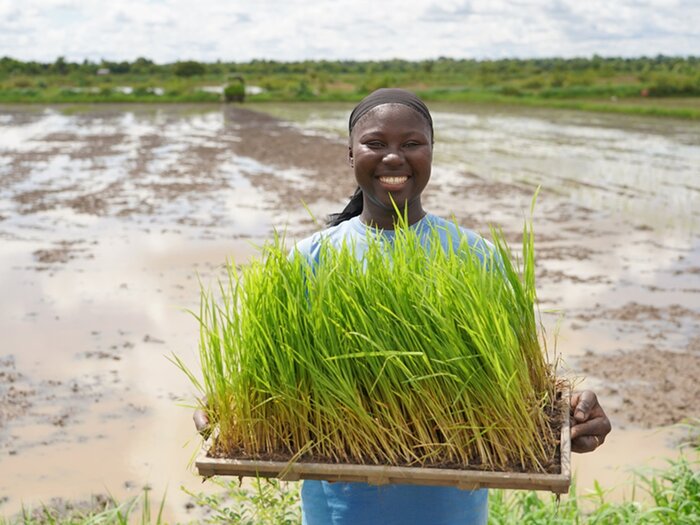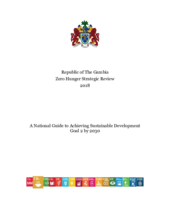Gambia
- 53.4%
- of the population live in poverty
- 27%
- of the population are food insecure
- 2.4 million
- population
The Gambia is facing its worst food-security crisis in a decade. The latest Cadre Harmonisé (November 202) indicated that over 207,600 Gambians were experiencing Crisis (Phase 3) and Emergency (Phase 4) levels of food insecurity – up 53 percent on the previous year. Stunting and wasting affect over 17 percent and 10 percent of the population respectively, reversing pre-COVID-19-pandemic gains.
Key drivers are high food prices (heavily linked to the war in Ukraine), unemployment and climate shocks. The Gambia produces only 50 percent of the food it needs and is highly dependent on food imports. The agricultural sector largely consists of smallholder subsistence farmers, who rely on often erratic rainfall. Food production is vulnerable to climate-related shocks such as droughts and floods, which affect the availability and price of food.
WFP has been present in The Gambia since the 1970s, providing food and cash as part of its crisis response, as well as supporting school meals and livelihood development, among other activities.
What the World Food Programme is doing in the Gambia
-
Crisis response
-
WFP works in partnership with the Government to provide food and cash assistance during times of crisis. For example, 51,200 people received three months of food assistance during the July 2022 floods.
-
School meals
-
We provide meals to children aged 3-12 in Early Childhood Development and Lower Basic Schools. The programme targets students in the most vulnerable communities where food insecurity, malnutrition and poverty rates are highest. Significant progress has been made in strengthening home-grown school feeding, through collaboration between WFP, the Ministry of Agriculture, and the Ministry of Basic and Secondary Education.
-
Nutrition
-
WFP provides nutrition supplements to children 6-59 months, pregnant and breastfeeding mothers/girls and people living with HIV, to treat or prevent acute and chronic malnutrition, working with the Government and other partners.. In 2022, we advised almost 35,500 people on dietary and sanitation practices.
-
Livelihoods
-
WFP supports smallholder rice farmers in The Gambia. Initiatives include monitoring markets, in collaboration with the Ministry of Agriculture, and supplying monthly market price information on the WFPVAM portal. WFP buys locally produced food to feed children in schools and disaster-affected areas, providing assistance while also boosting trade for smallholder farmers.
-
Capacity strengthening
-
WFP works with partners to address the effects of climate change. An integrated risk programme includes asset creation, microinsurance and rural financial services, forecast-based finance and early action, contingency planning, cash for work and support to farmers to adopt climate-adapted agricultural practices and diversified livelihoods.
-
Social protection
-
WFP supports the National Social Protection Secretariat with capacity and coordination support, for activities including the establishment and strengthening of the National Cash Transfer working group. WFP supported the National Social Registry through the development of the data sharing and protection protocol.
Gambia news releases
Go to pagePartners and donors
Find out more about the state of food security in Gambia
Visit the food security analysis pageOperations in Gambia
Contacts
Office
UN House, Koffi Annan Street, Cape Point, Banjul, Islamic Republic of the Gambia.
Banjul
Gambia


